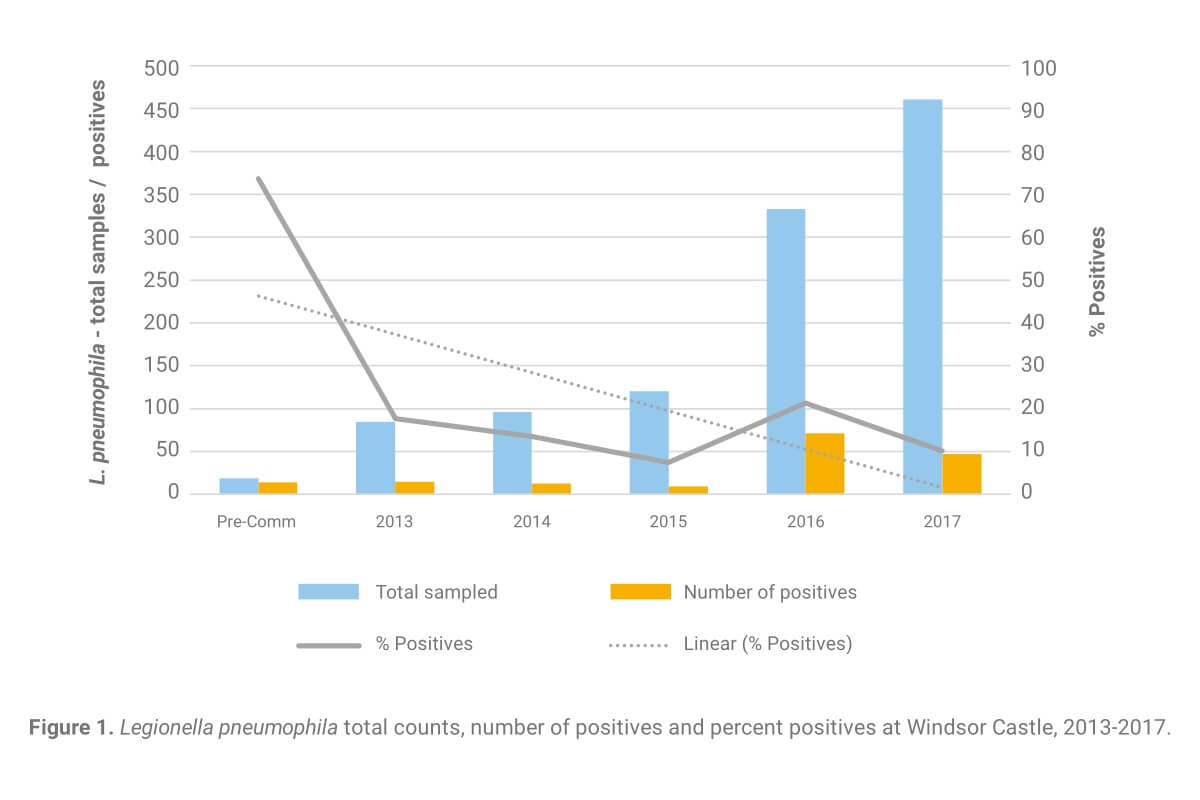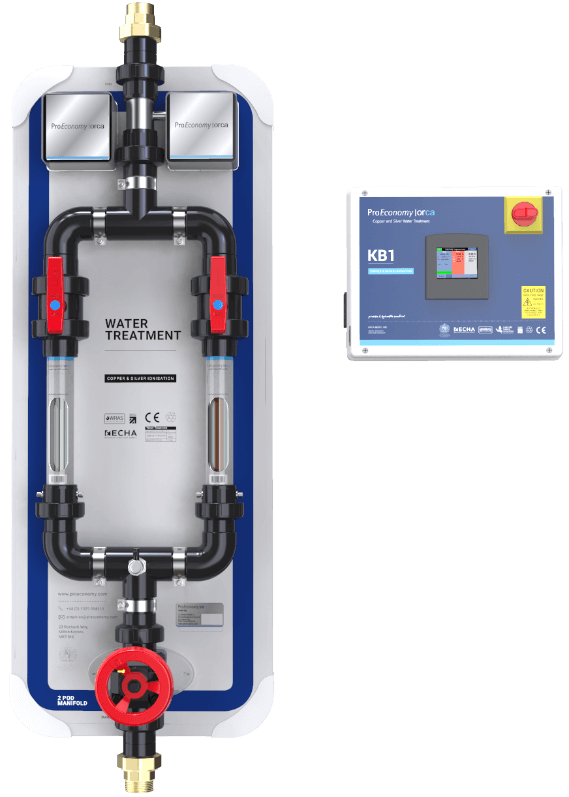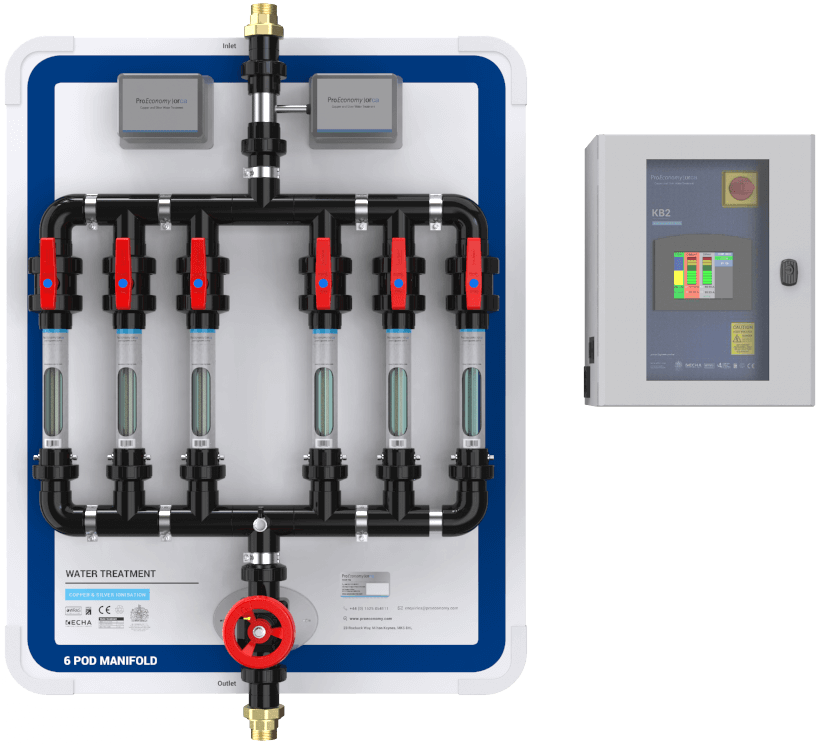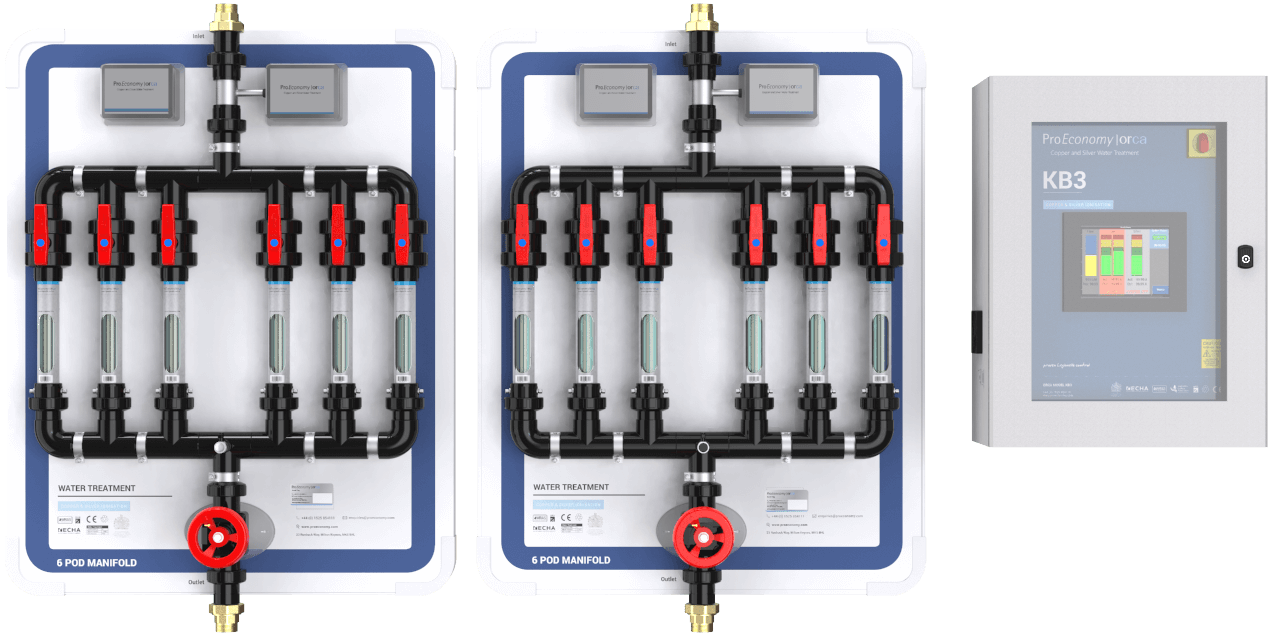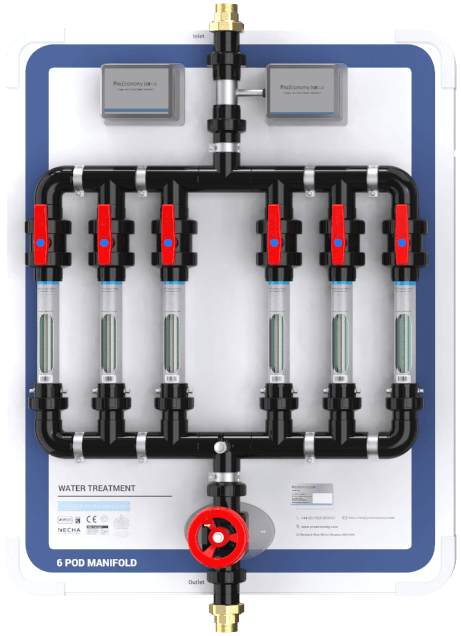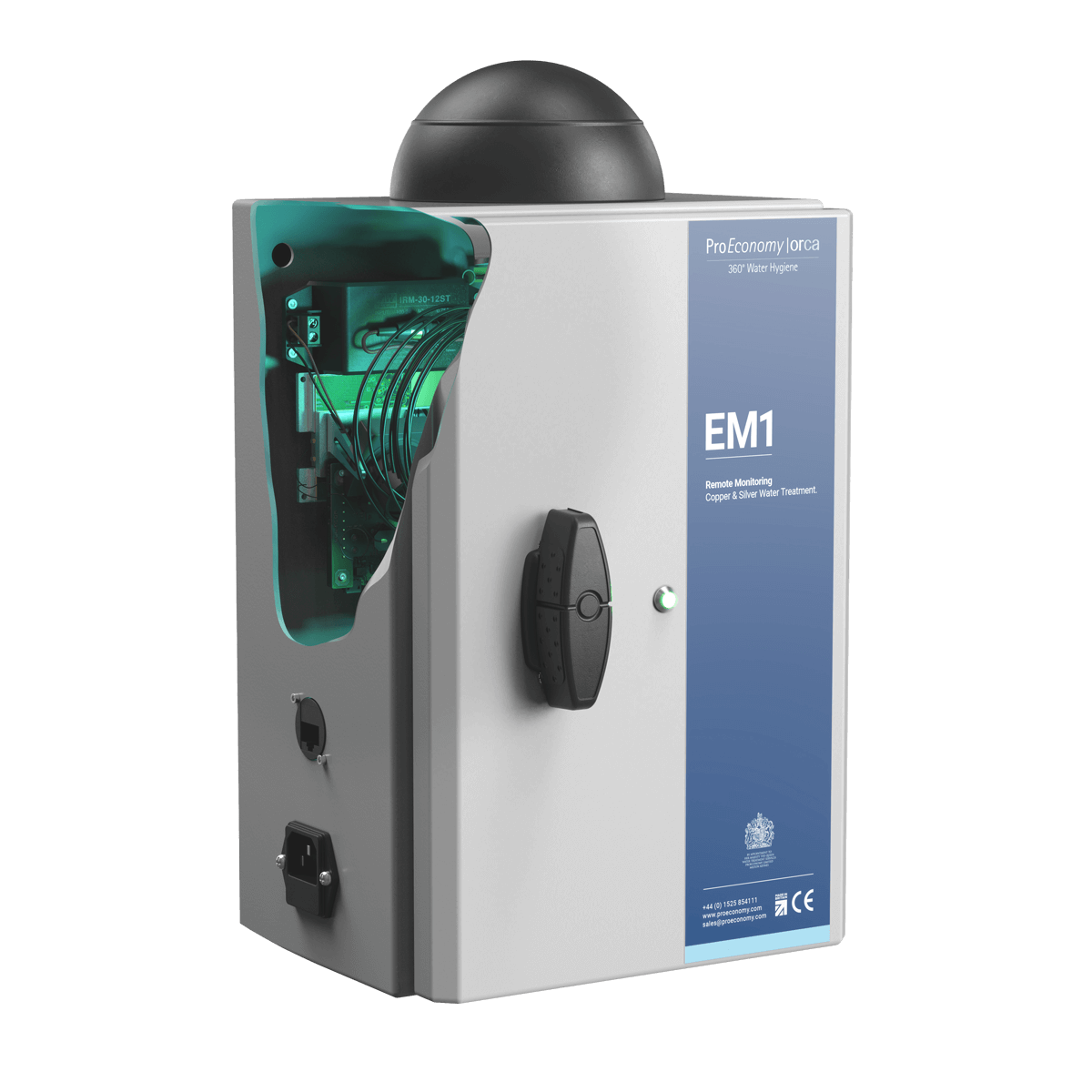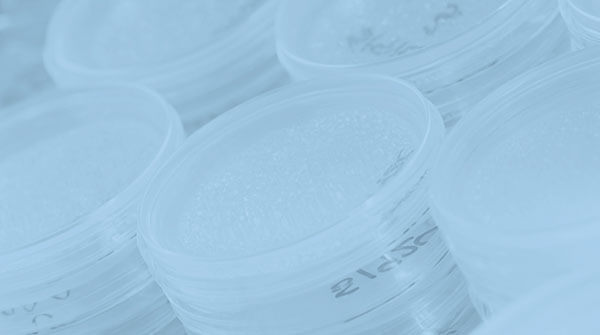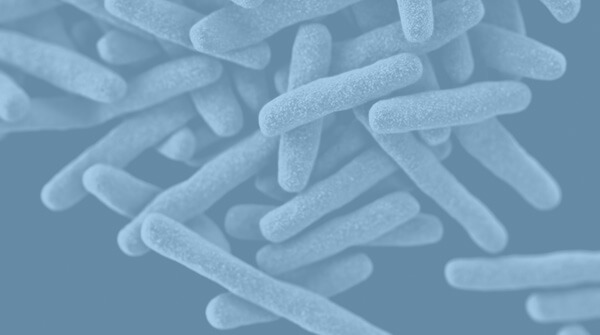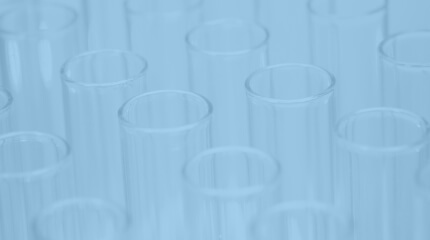Legionella Control In Hospitals
Hospitals and their water systems are often known as breeding grounds for Legionella. Unfortunately, those already suffering from illness or those who are immune-compromised have an increased risk of contracting Legionnaires’ disease, the disease most commonly associated with Legionella. Consequently, Legionella control in hospitals is highly important.
We have installed our Orca copper and silver water treatment system in over 90 hospitals across the UK. Meanwhile, our Tetras water management system is revolutionising hospital water management by eradicating the need for endless paper trails and uploading all water sample results to a cloud based portal. Consequently, facilities managers can access water sample results, trend results, identify problem outlets and export results into Excel spreadsheets to save time and better manage their water risk. Our client relations team are also on hand to help healthcare professionals resolve water treatment issues and will also attend water safety group meetings, where necessary, to support all clients.
It is through this bespoke water treatment and management service that we are able to deliver proven Legionella control in hospitals and protect patients and staff.
You can view our hospital water treatment case studies below. Alternatively, if you would like to discuss Legionella control in hospitals further, contact our team today.
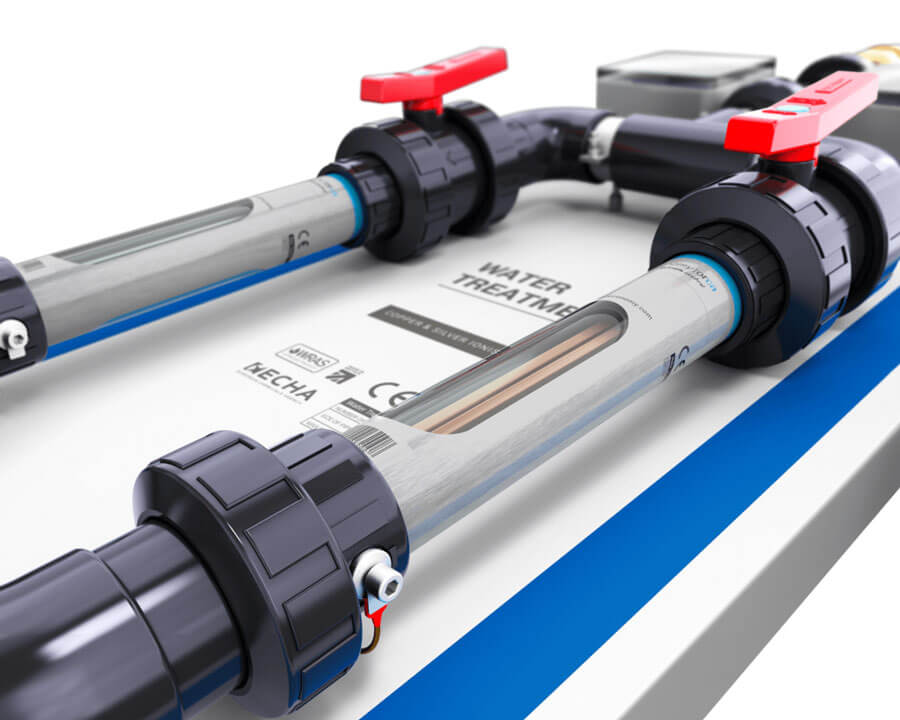
- Basildon University Hospital
It was concluded that Legionella could not be effectively controlled using a temperature regime alone and that copper and silver ionisation used in conjunction with the temperature system already in place was effective for Legionella control at this hospital. Legionella is still being controlled successfully at Basildon Hospital since the last data shown in the below case study.
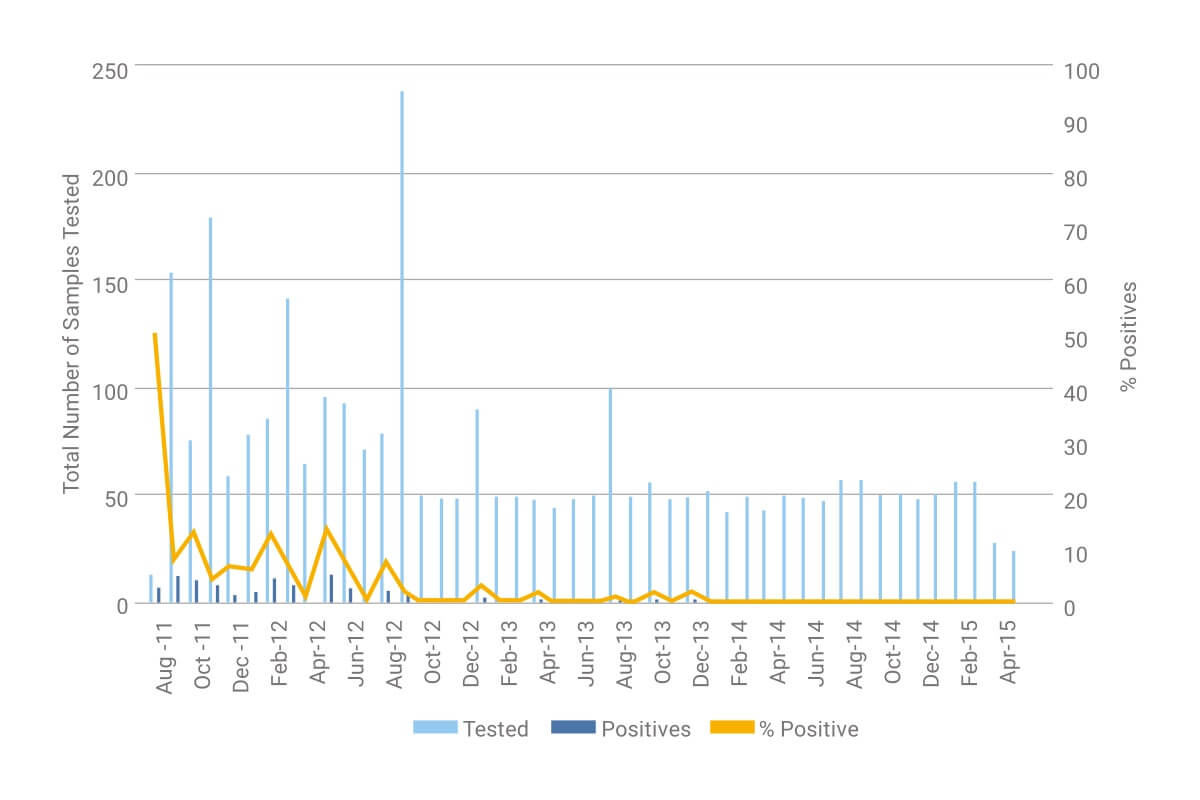
- Birmingham Heartlands Hospital
Within a month of installation, the Orca system was proving to be very effective at Birmingham Heartlands Hospital. From the 21 sites we returned five positive samples, ranging from 100cfu/l to 2,000cfu/l. These results continued to improve and by the March 2008 all the samples we were taking were completely clean. A further advantage of reduced TVC levels were also realised in areas previously known to have high levels. Read the Heartlands case study and a full interview with estates manager Tony Wright below.
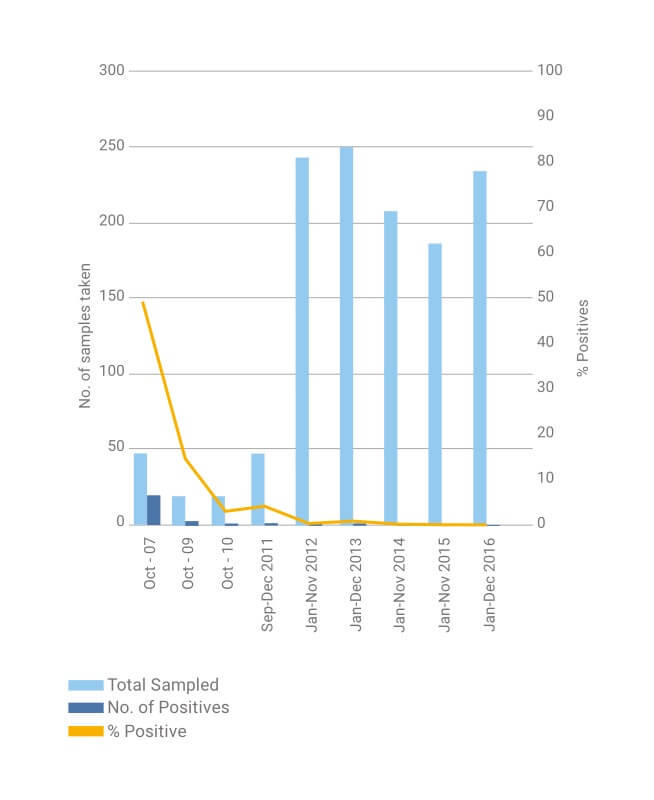
- Solihull Hospital
Following the success of the Orca at Heartlands, one copper and silver ionization system, with eight copper and four silver electrode chambers, was installed in January 2008. Of the 357 samples taken in the past four years, only six were positive for P. aeruginosa (1.7%). Meanwhile, no Legionella has been detected for the past 3 years (April 2014 - April 2017).
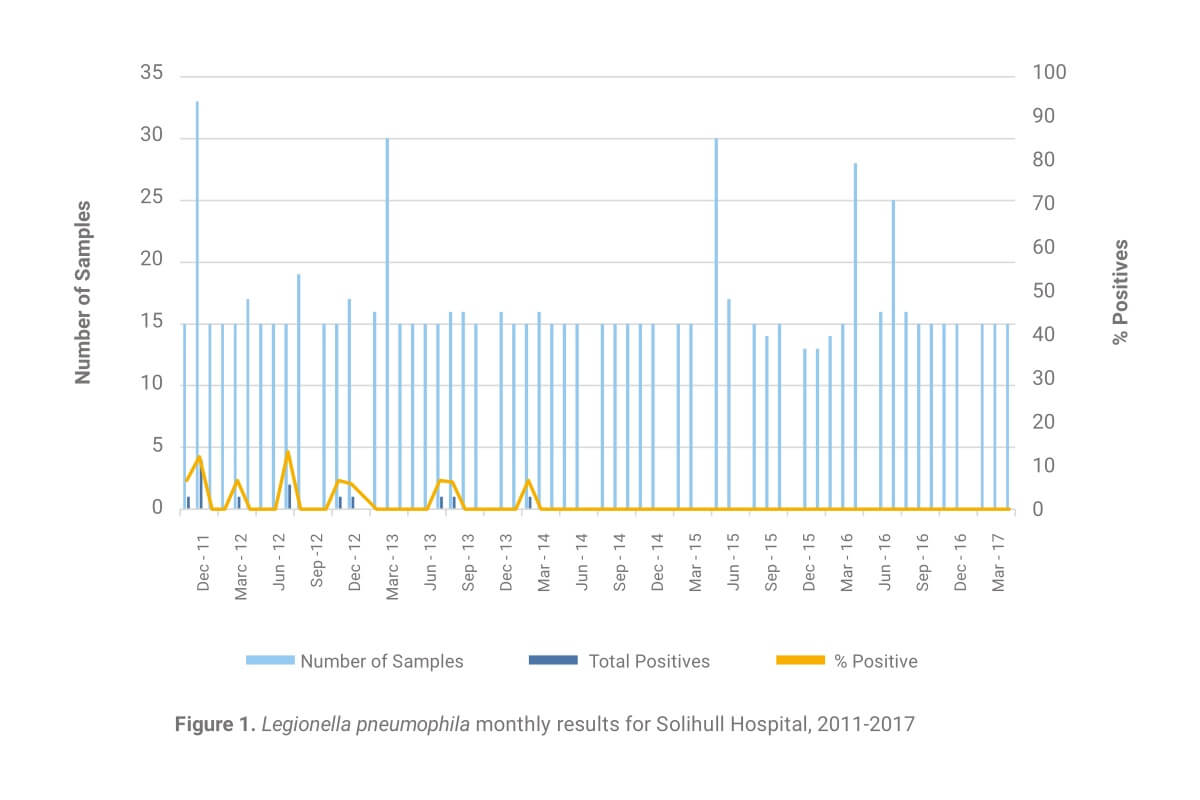
- Churchill Hospital
There was enough evidence to show Legionella posed a real threat to Churchill Hospital. Legionella control using a CSI system was achieved from May 2015 and total Legionella eradication was achieved from August 2016 onwards.
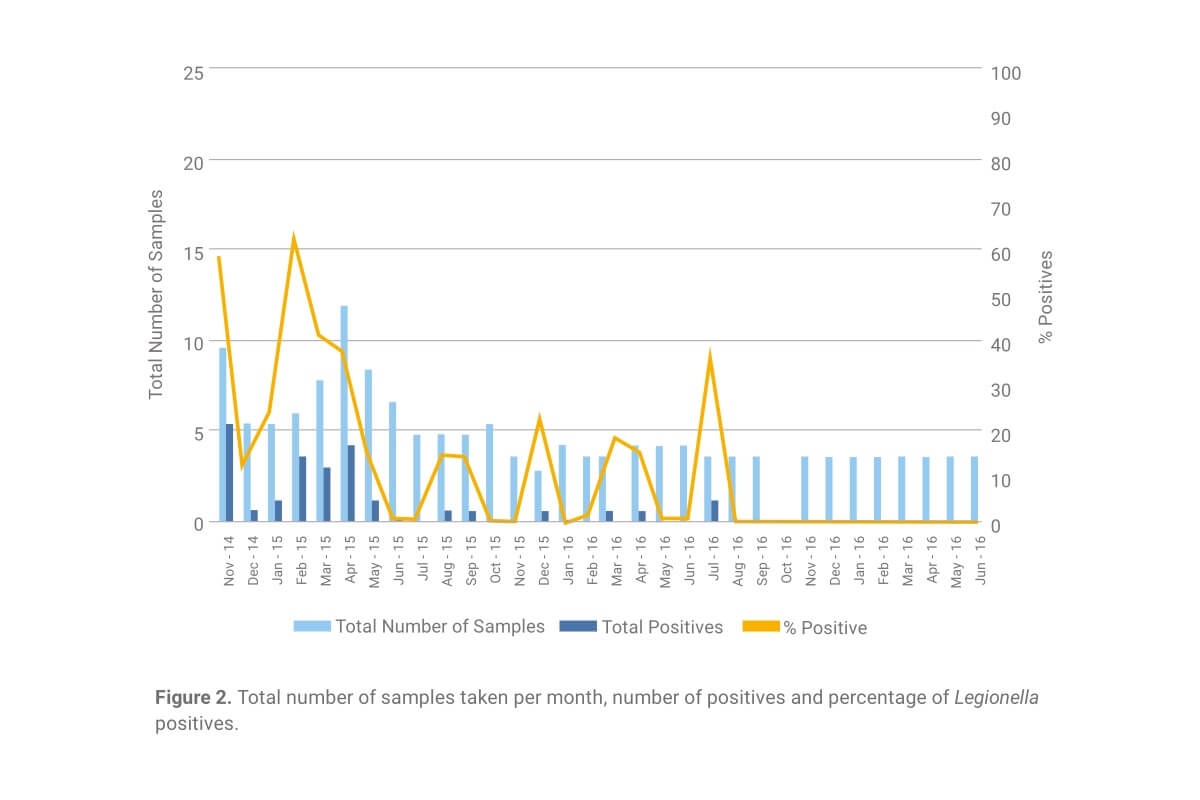
- Devon Centre for Women’s Health
One month after the installation of the Orca system, samples were taken from four outlets that were contaminated before the system activation and from six other outlets identified as being at risk of Legionella contamination. No Legionella were found in these samples, with silver levels of 0.039 to 0.115 mg/L.
- The John Radcliffe Hospital Oxford
Legionella control using the Orca system was achieved from January 2017 at JR1 and total Legionella counts have reduced steadily in the past year from 24 to 2 positive samples at JR2.
- Derriford Hospital - Tower Block Building
Overall, the Orca CSI system is successfully controlling Legionella in the Derriford Hospital's drinking water with Legionella levels being kept to below 5% of samples analysed between January 2014 and December 2017
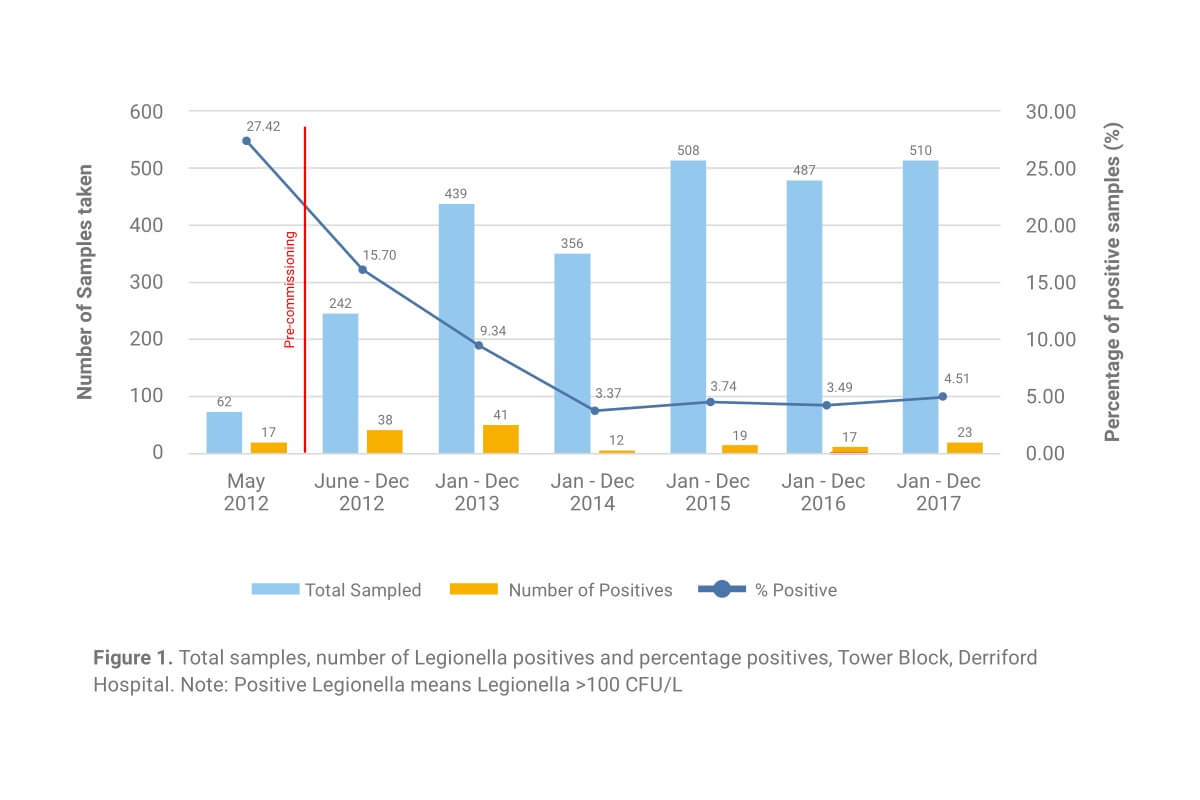
- Eastbourne Hospital
The copper and silver ionisation system has had a very obvious effect on Legionella and Pseudomonas control in Eastbourne Hospital water system. Regular monitoring and water circulation is important for long term L. pneumophila and P. aeruginosa control at this site.
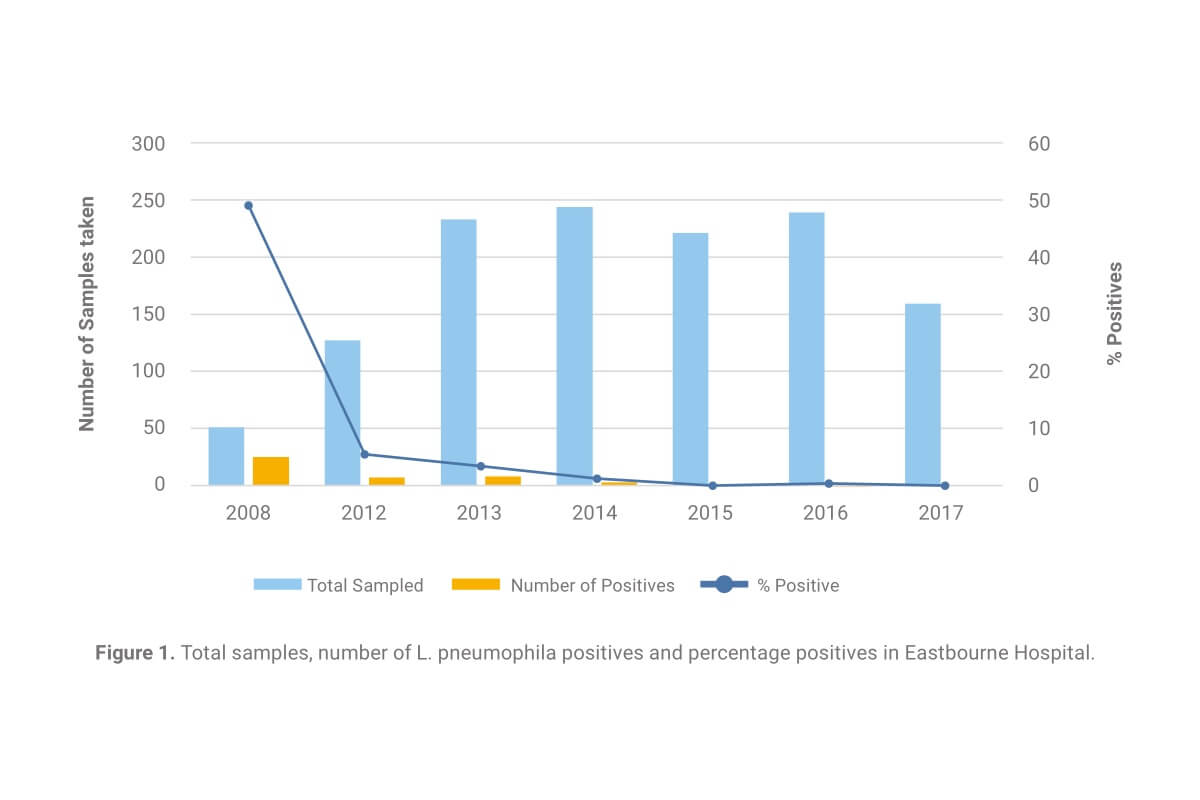
- Spire Healthcare Hospitals
Following the success of the Orca system at Little Aston Hospital and Gatwick Park Hospital, the Orca copper and silver ionisation water treatment system was installed at Greenbank Road Liverpool Hospital in Liverpool, Methley Park Hospital in Leeds, and Dunedin Hospital in Reading. As can be observed in Table 2 in the below case study, the Orca system successfully reduced the number of positive Legionella counts at the hospitals.
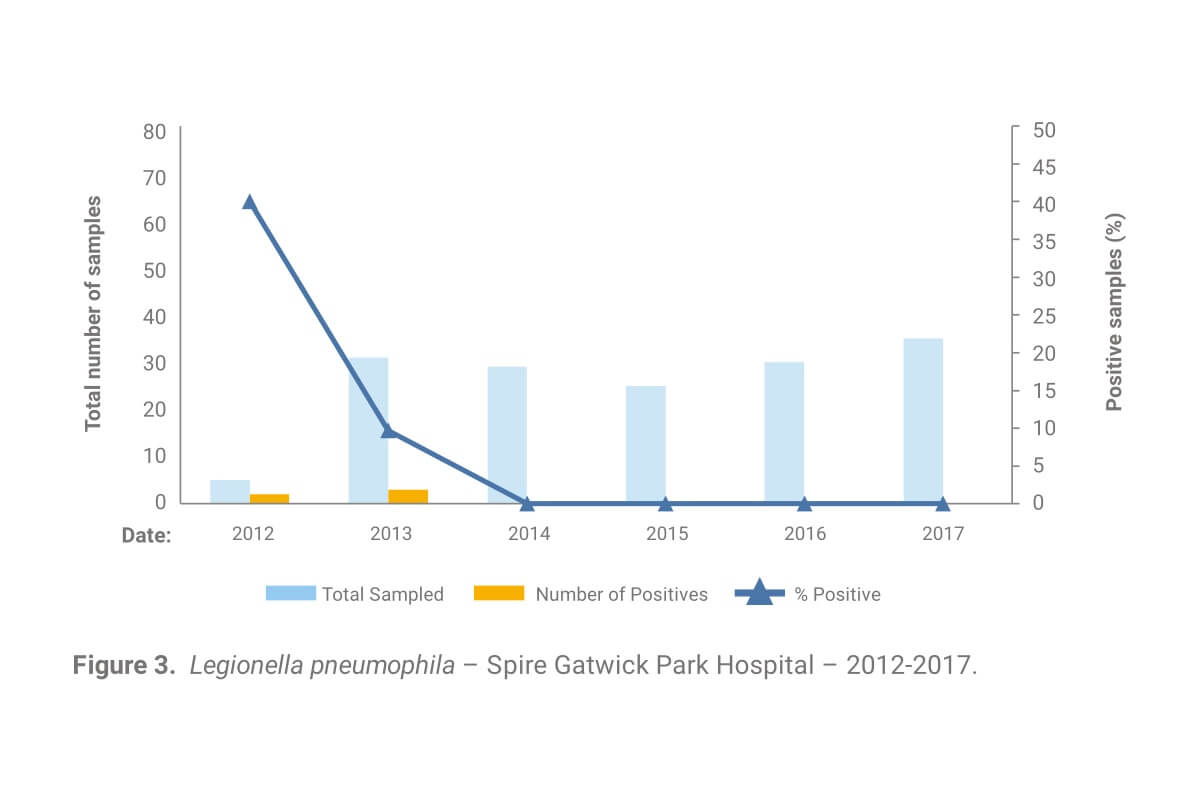
- Good Hope Hospital
The copper and silver ionisation Orca system has had an obvious effect on both L. pneumophila and P. aeruginosa over time from 2011 to the present in the Good Hope Hospital water system. No L. pneumophila has been detected since 2017 and very low P. aeruginosa positives were detected throughout the time.
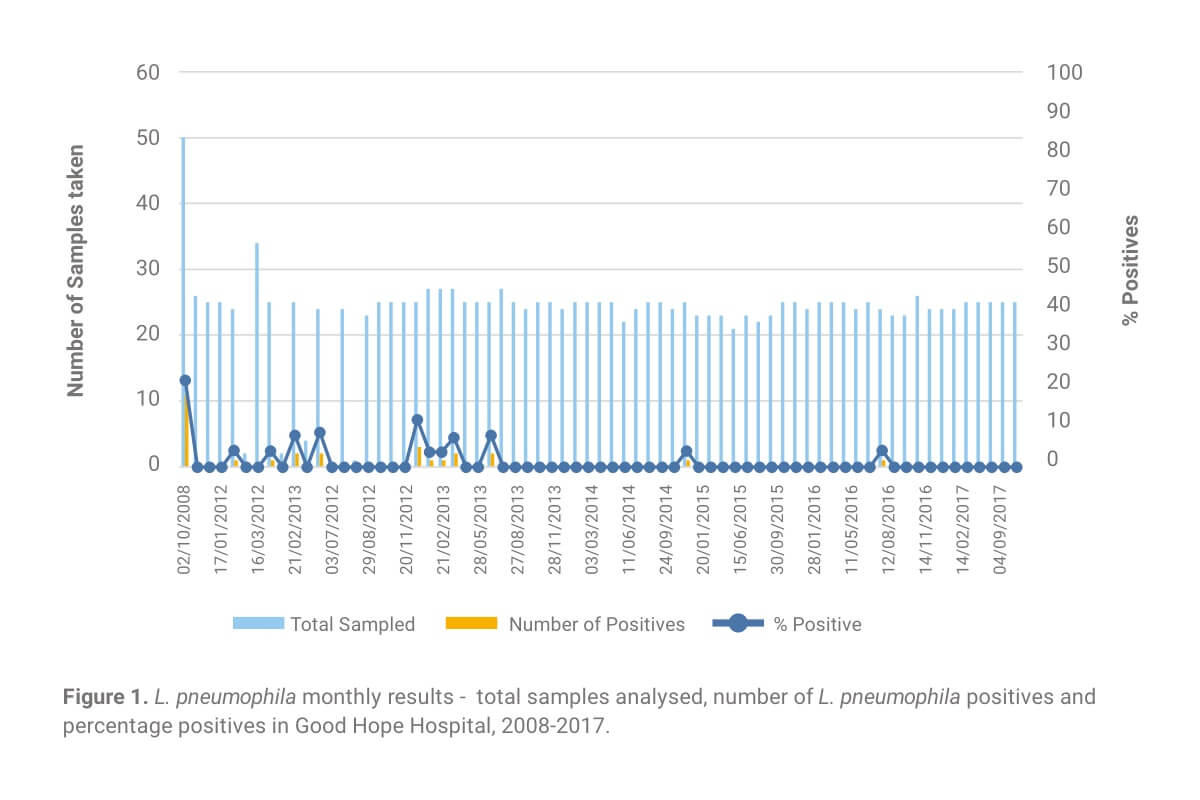
- Windsor Castle
The largest and oldest occupied castle in the world, Windsor Castle has been a home to British monarchs since Henry I began using it in the 11th century.
